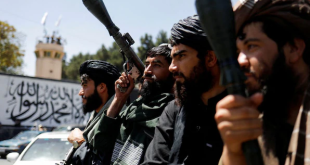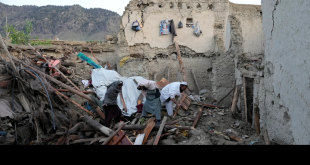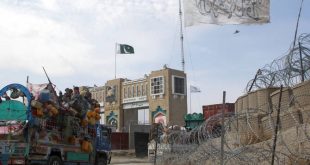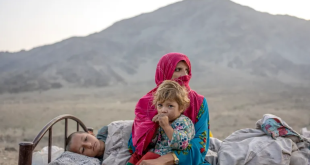AT News
JALALABAD: An agreement earlier this year to resolve a longstanding community dispute over Nangarhar water resources has continued to foster social cohesion among formerly warring tribes.
In April 2019, mediation between the Markikhil and Kadarkhil tribes in Nangarhar’s Shirzad district concluded with a unanimously adopted resolution regulating water-distribution rights.
In the three-day mediation session – locally called a jirga – participants highlighted the negative impact of the 50-year-old feud over water rights and resolved to end the dispute peacefully.
The mediation was facilitated by UNAMA as part of its local peace initiative program, in close coordination with the Nangarhar Conflict Resolution Commission.
At the conclusion of the jirga, participants encouraged each other to look to the future and focus on larger issues impacting their communities.
Rahmatullah, an elder from the Markikhil tribe, said at the time of the jirga that the conflict was dangerous for the communities in the areas, especially in times of drought.
The water dispute had led to the displacement of hundreds of people, with jobs lost, relatives unable to visit their families and children unable to attend school.
In a recent interview, Rahmatullah said the peace initiative not only solved the water conflict but also encouraged local elders to play active roles in resolving similar kinds of disputes as they emerged.
“After the peace jirga, and especially during the last five months, we solved about 15 conflicts, including land disputes, water disputes and family disputes,” he said, thanking the Nangarhar Conflict Resolution Commission and the United Nations for their support.
Zabith Khan, an elder from the Kadarkhil tribe, said in a recent interview that at the time of the jirga he was convinced by mediators to think about the future.
“From the time of the jirga agreement up to now, both tribes have been living peacefully together, working normally and enjoying their lives,” said Khan.
The head of Nangarhar’s Conflict Resolution Commission, Muhibullah Rohani, recalled that the process of preparations took six months before the three-day jirga in April was held, with involvement from UNAMA alongside mediators who included women, religious leaders and government officials.
Women played an important role in the jirga, according to Zarghuna Naeemi, an influential activist and member of Nangarhar’s former Provincial Peace Committee.
“We contacted women from both sides and encouraged them to speak with their male family members to take part in the jirga,” said Naeemi. “They agreed and eventually the jirga was called, with women participating as well and providing their input to the final agreement.”
The jirga was covered by local media – Safa Radio, Sharq Radio and Sharq TV – to disseminate the key messages to audiences of around 800,000 in Jalalabad and the majority of the districts in Nangarhar.
UNAMA is mandated to support the people of Afghanistan as a political mission that provides ‘good offices’ among other key services. ‘Good offices’ are diplomatic steps UN takes publicly and in private, drawing on its independence, impartiality and integrity, to prevent international disputes from arising, escalating or spreading.
UNAMA also promotes coherent development support by the international community; assists the process of peace and reconciliation; monitors and promotes human rights and the protection of civilians in armed conflict; promotes good governance; and encourages regional cooperation.
 Afghanistan Times
Afghanistan Times




